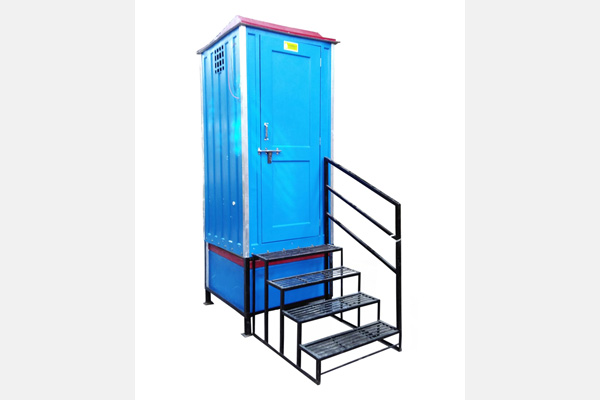
Benefits of Waterless Bio-Toilet – A Sustainable Sanitation Solution
Plenty of people probably use toilets multiple times in a day. A large amount of precious water is flushed down the drain turning it into waste. According to a statistic provided by Conserve H2O, a Water Providers Consortium, 1.6 litres of water is wasted per flush. Depending on the toilet cistern parts, toilets can use ever more water.
A home flush system uses up to 12 litres of water per minute. Plumbing experts say that in commercial buildings, 45 litres of water is utilized per day per employee. The huge amount of water wasted can be treated for drinking.A NITI Aayog report states that 75% of Indian households do not have clean drinking water and 84% rural households lack safe piped water for use. Use of toilet flush must be seen as one of the causes for the unavailability of water.
A waterless bio-toilet is one of the best alternatives which can help in the conservation of water. Besides, it can prevent environmental pollution caused by pollutants from human waste and untreated wastewater.
Swachh Bharat Abhiyan, the nation-wide cleaning campaign also aims to achieve and promote Open Defecation Free – ODF + and ODF++ status to every corner of the country. Eco-friendly bio-toilets, biodigester are an inexpensive and better alternative to traditional means of waste disposal. It can also provide easy toilet access to more people in the future.
Waterless bio-toilets with low-cost infrastructure can help alleviate sanitation and hygiene issues. It requires minimum energy as well. Also, portable toilets solve the problem of sanitation for on-site construction workers, places prone to droughts or water-scarce areas.
Treated water from biodigester can also be used for agricultural and gardening purpose.
How waterless bio-toilet works and its benefits
Bio-toilet can be defined as a system in which human waste is biologically degraded into gas and water with minimal or no use of water.
In India, waterless composting toilets are the most common type. It requires the construction of a raised platform or a pit. Some of the structures include single-pit where manual scavenging has to be done or twin-pit designs where decomposition takes place in one pit and emptied via another.
At some places, cement toilets and pit latrines are used. The biochemical interaction of temperature, desiccation, and digestion over a long period helps in degradation. These are not useful in the long run. The effective management of faecal and septage is a major problem.
Biodigester toilets are very effective in this regard. These toilets usually have a tank fitted below the commode which contains the microbial community. When waste comes in contact with the bacteria, it is broken down and converted into carbon and methane gas and water. The methane gas released can be used for energy purposes also.
Other types of bio-toilets include Permeable reactive barrier, self-cleaning toilets, and UDDT toilets.
Benefits of using Bio-toilets
- Prevents contamination of water resources by treating human waste and water.
- Further treatment can turn the waste into fertilizer which can be used for soil and agriculture.
- It is a perfect alternative to the dumping of waste in the ground, especially in rural areas.
- It is an innovative method to decompose waste in an eco-friendly and economical manner.
- Also controls bad odour problems if effective microbial treatment products are utilized for degradation.
Organica Biotech has developed award-winning faecal management solutions which won appreciation and recognition in the Swacchathon Awards organized by the Ministry of Drinking Water and Sanitation, Government of India. It has also been recommended by the Mashelkar Committee as one of the only sustainable solutions to meet sanitation milestones in India.
Bioclean – Biodigester+Bio-toilet use powerful microbes to accelerate faecal and septage decomposition and are highly effective to solve the sanitation problem in India and the world.
Bioclean BD – The microbial treatment is highly capable of degrading waste in septic tanks, Biodigester tank, soak pit, pit latrines, twin pit latrines and mobile toilet van under any condition. It curbs foul odour and combats pathogens.
Bioclean Biodigester – The outstanding features of Bioclean Biodigester is that it is mobile, flexible, easy to transport and requires easy one-time installation. The three-part compartmentalization helps to degrade the waste completely before it exits the biodigester.
Bioclean Bio-toilets are made of Unplasticised Poly Vinyl Chloride (UPVC), it is easy to install, durable and do not require any maintenance. It provides excellent insulation from sound, heat, cold, rust and rain and therefore has a shelf-life up to 20 years.
Use waterless bio-toilets and bio-toilet solutions from Organica and help conserve water and prevent the environment from untreated human waste and wastewater.
Source: www.organicabiotech.com


